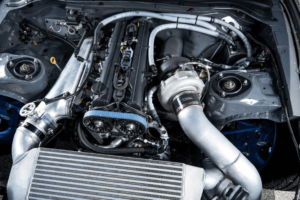Your car is cruising smoothly on the highway when the check engine light suddenly comes on. What’s happening? Is it dangerous to continue driving while it is on? In this article, I will discuss the main reasons behind the check engine light on, but the car runs fine issue.
A check engine light that turns when your car is running fine means there are problems in its electrical system or issues in its emission system. Perhaps you forgot to tighten the gas cap. Untightened gas cap is the most common reason the check engine light is triggered.
It’s natural to be worried if the check engine light appears. To allay your fears, perform a steering and brake check. If nothing strange happens, it is probably safe to continue driving. Your best recourse is to go to the nearest car repair shop and have a mechanic check your car. You need to know what caused the check engine light to turn on.
Read on to learn more about why the check engine light on your dashboard turns on when your car seems to be running fine.
Check Engine Light on, but Car Runs Fine
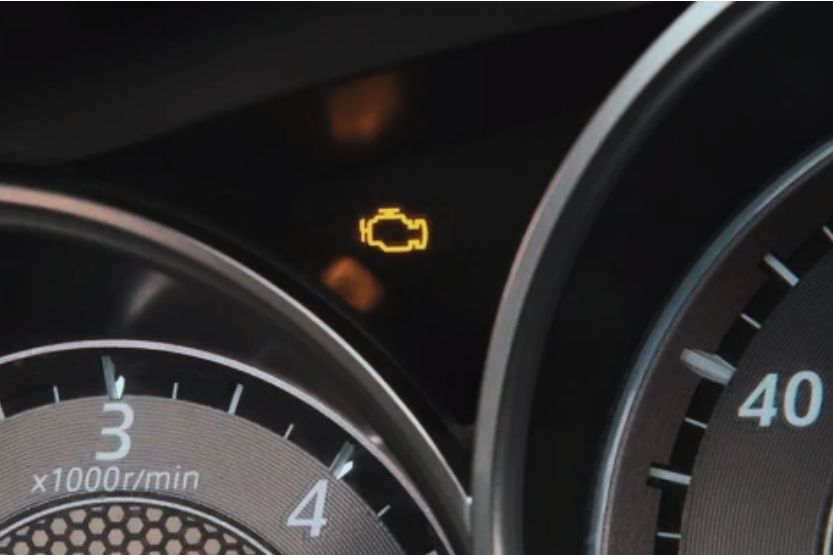
The check engine light turning on is a problem that can happen while driving. Considering that your car comprises many systems and parts, this could mean many things. But your car is still running fine, so what’s causing this light to turn on?
Most Common Reason
There are many probable reasons why the check engine light is triggered. The most common reason and the easiest to fix is untightened gas cap. Perhaps you forgot to tighten the gas cap after filling up the tank. How to reset the “check engine” light if this is the case? To reset it, tighten the gas cap.
Other Causes
There are other causes why this light is triggered, including problems with the vehicle’s electrical system, emission system, etc.
The general rule of thumb is: if the check engine light turns on, you can’t keep on driving. But if your car seems to be running fine, it is still safe to drive. To be sure, perform a brake and steering check.
Drive the Car to the Nearest Repair Shop
If nothing serious happens, you can still drive your car, not towards your original destination, but to the nearest car repair shop. You need to have your car checked by a qualified mechanic to determine what caused the check engine light to turn on.
Check Engine Light’s Function
The main function of the check engine light is to warn you that there is an ongoing issue in the engine or some of the car parts associated with the engine. There is a range of reasons why this check engine light is solid.
Engine Fault Service Now Meaning – Ford Escape and Focus
What Causes Check Engine Light on, but Car Runs Fine
14 possible causes of the check engine light being on, but the car running fine are:
- Failing Catalytic Converter
- Malfunctioning Vehicle Diagnostics
- Gas Cap Issues
- Bad Spark Plug or Plug Wire
- Bad Oxygen Sensor
- Transmission Issues
- Malfunctioning MAF Sensor
- Overheating Engine
- Emission Equipment Issues
- Other Engine Issues
- Ignition System Problems
- Sensor and Module Problems
- Air/Fuel Mixture Issues
- Bad Fuel Economy
You need to know the main causes of this issue. And that’s what we’re going to discuss now:
1. Failing Catalytic Converter
A malfunctioning catalytic converter can trigger the check engine light on your dashboard. This cat converter aims to transform the toxic carbon monoxide coming out of the exhaust manifold into carbon dioxide, which is less dangerous.
If the cat converter is going bad, it can’t do what it’s supposed to do. Your vehicle will not pass the emission test, and you won’t be able to register your vehicle with your local DMV. If it is even clogged, your car’s fuel efficiency will suffer. This may cause your engine to overheat.
2. Malfunctioning Vehicle Diagnostics
If your car seems to be running fine with the check engine light turned on, there’s probably some glitch in your vehicle’s diagnostics. Modern cars are now heavily dependent on internal computer diagnostics to function efficiently and optimally.
As you well know, computers can also run crazy. Your car’s Engine Control Unit (ECU) is no different. Perhaps there is a loose connection in its wiring system, or it is “finding” an issue that doesn’t exist.
Get the ECU checked by a qualified mechanic to see if it is still correctly monitoring the components and systems of your car.
3. Gas Cap Issues
An issue with the fuel tank’s gas cap can cause the check engine light to come on if it has an issue. This gas cap should seal the fuel tank to prevent dirt and other debris from entering.
Helps Keep the Proper Pressure Level inside the Fuel Tank
But that’s not the only thing that it does. The gas cap helps keep the proper pressure level inside the fuel tank and prevents the fuel from evaporating. So, if there’s an issue with your gas cap, the check engine light on your dashboard will come on.
Causes of Gas Cap Issues
- You forgot to tighten it up after filling the tank.
- The gas cap’s rubber seal is damaged, allowing the gas vapors from the fuel to leak.
- Your fuel tank has no gas cap in the first place. It is missing.
4. Bad Spark Plug or Plug Wire
Spark plugs and their wiring connections are important parts of your engine. They provide the sparks required to ignite the fuel inside the engine’s combustion chambers.
If only one of them goes bad, you’ll have a misfiring engine. That will affect the engine performance and that of your car as well. When this happens, the check engine light will turn on.
Plug wires can also trigger the check engine light. Worn-out wires can block the cat converter. The ignition coils and the oxygen sensors will be damaged if that happens. The check engine light turns on to warn you of the problem to prevent that from happening.
5. Bad Oxygen Sensor
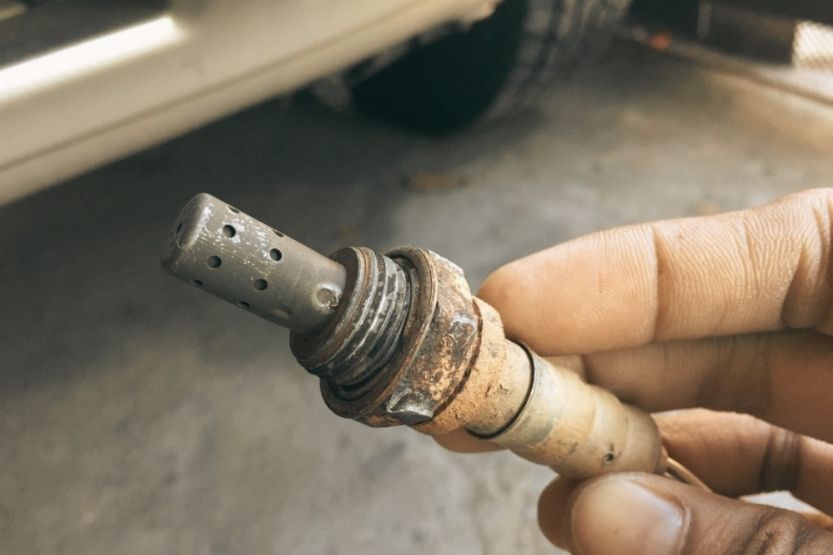
A malfunctioning sensor can also trigger the check engine light. If the sensor fails, the engine’s fuel efficiency will be severely compromised. This may even damage the cat converter and the spark plugs.
An oxygen sensor is responsible for sending data to the ECU. The data is the amount of oxygen that is entering the engine. This enables the ECU to adjust the air/fuel mixture so the engine can run efficiently.
The oxygen sensor monitors the unburned fuel coming out of the exhaust manifold. So if it is going bad, the check engine light will come on.
6. Transmission Issues
Your car’s transmission system converts the engine’s power into rotary motion to the wheels for your car to run. Your car’s engine and transmission work together very closely.
If the transmission develops a problem, there will also be a corresponding problem with the engine, particularly its exhaust emissions. So, if your car’s ECU detects a transmission issue, it will trigger the check engine light on your instrument cluster.
7. Malfunctioning MAF Sensor
The mass airflow sensor can also trigger the check engine light if it is going bad. Its main function is to measure the airflow and instruct the ECU on how much fuel it requires.
So, if it is not working well, your vehicle’s fuel economy will suffer. It will also compromise the performance of your engine. That’s why the ECU turns the check engine light on.
You need to fix this problem because it can cause damage to your cat converter, oxygen sensor, and spark plugs. Or perhaps the sensor is incorrectly mounted on the air filter.
So, fixing its mounting might turn off the check engine light. However, if the light persists, it might be the problem of the MAF sensor itself.
8. Overheating Engine
An overheating engine will also turn on the check engine light. But don’t wait before your engine overheats. Your engine will show you some signs before it overheats. One of them is the temperature gauge in your instrument cluster. The pointer on the temperature gauge will continue to rise.
Don’t wait for the smoke to come out of the engine bay. Slow down right away and go to the shoulder of the road or wherever it is safe to stop and park your car there. You can turn on the heater to release some of the heat coming from the engine.
Allow the engine to cool down before starting the engine again. This may take a couple of hours. It’s better to do this than run the risk of the engine seizing up.
9. Emission Equipment Issues
If there are issues in any of the emission equipment of the vehicle, the check engine light will turn on. Due to the emission requirements of the government, car manufacturers have to equip their vehicles with all sorts of emissions devices so they can pass these regulatory requirements.
The list of emission equipment includes the evaporative emission system, the catalytic converter, the exhaust gas recirculation system, etc. Each of these systems is designed to reduce tailpipe emissions. The government requires them to protect the environment.
Again, why is my check engine light on, but my car is running fine? While the car is running fine, a flashing check engine light might be due to an electrical system, engine, fluid level, or emission system issues. Problems with the gas cap can also cause this warning to lit up.
10. Other Engine Issues
If you are like any ordinary driver, the first thing that will come to your mind when the check engine light suddenly turns on is, “there’s a problem with my engine!” Yes, you are probably right, but not 100% of the time.
Of course, if the engine is experiencing some problems, the check engine light will be triggered.
Your vehicle’s ECU has a control module that monitors the engine’s operation. It uses several sensors to do this. When one of the sensors detects a problem, it will cause the check engine light to turn on.
11. Ignition System Problems
If your car’s ignition system is experiencing some problems, this will also cause the check engine light to come on. This system includes the following:
- Spark plugs,
- Electrical wirings,
- Coil packs, and
- Required parts to ignite the air and fuel mixture inside the combustion chamber.
The control module of the ECU can detect any problem with these parts. So, if any of these parts is having an issue, the control module will turn on the check engine light.
12. Sensor and Module Problems
The powertrains of modern vehicles are managed by a wide range of sensors and modules. These electronic devices communicate with each other through a huge data network.
So, if there is any problem with any one of these electrical components, the check engine light on your instrument cluster will turn on.
13. Air/Fuel Mixture Issues
The air to fuel mixture ratio should be right for the engine to run smoothly and efficiently. If this ratio gets skewed, the engine will get too much or too little air or fuel.
The control module or the ECU will notice this. It’ll turn on the check engine light to get your attention to this problem.
14. Bad Fuel Economy
The check engine light will also turn on if your car is experiencing poor fuel economy. This is related to the condition of the MAF sensor, the oxygen sensor, catalytic converter, and spark plugs.
The air intake of the engine is highly technical. If it goes haywire, poor fuel economy will result. The check engine light turns on to give you a warning.
Should You Ignore the Check Engine Light Warning?
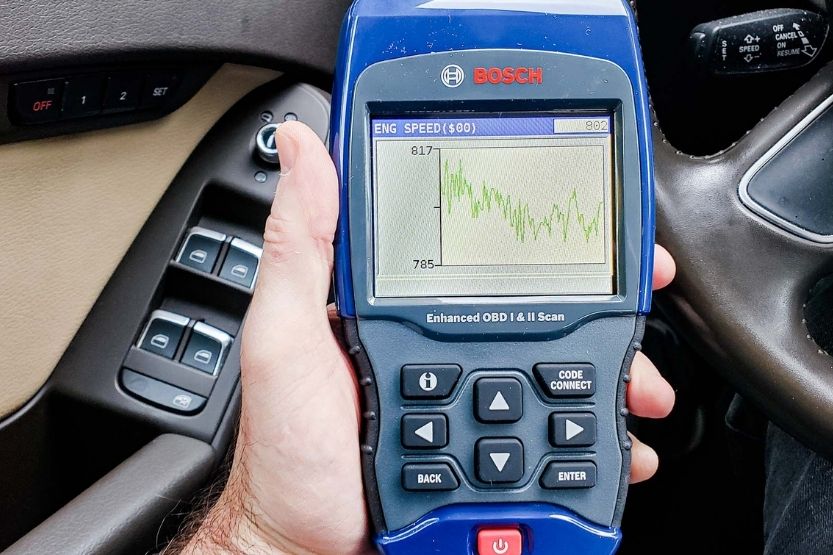
If your car is still running fine, ignoring it would be a mistake even if the check engine light suddenly comes on. It is not only a mechanical problem that can trigger this light. Ignoring this light will not make it go away.
Get the Car to a Car Shop
There could be an underlying problem that is not very obvious. So, if you ignore this light, this hidden problem may worsen. To be on the safe side, you have to get your car to a car service shop so a qualified mechanic can have a look.
Check the Car’s Condition Using an OBD II Scanner
Most mechanics will use an OBD II scanner to get an overview of the condition of your car concerning this issue of the check engine light. Even you can make use of this scanner to check the condition of your car.
If you want to pinpoint the exact cause why the check engine light was triggered, you need to use the right car diagnostic equipment.
That piece of equipment is what they use in reputable car repair shops. So, I hope you get the drift: get your car immediately to a good car repair shop so that this issue can be correctly assessed and fixed.
Safer to Have a Mechanic Assess Your Car
The point is not to get cozy because your car is still running. Don’t think that a flashing check engine light is just a glitch. It is a much safer route to take it to a qualified mechanic so they can make the right assessment.
What to Do If Check Engine Light On
Frequently Asked Questions
We are now down to the answers to the most often asked questions about this topic. This will help you to remember the important points that I have discussed in this article:
My Car Is Okay, But Why Is Its Check Engine Light Turning on?
There are many reasons why the check engine light on your dashboard comes on even if your car is still driving fine. One of the common reasons is the gas cap is not fully tightened.
Perhaps you forgot to tighten it fully after filling her up. Other reasons include a bad catalytic converter, issues with the electrical system, problems with the ECU, and so forth.
What Can I Do to Assess the Problem?
If this light suddenly turns on, you can slow down, get to the shoulder of the road, and park it in a safe spot. Then perform a steering and brake check. If nothing serious happens, you can still drive your car – to the nearest car repair shop where you can have it checked.
Don’t treat this problem lightly because you don’t know if there’s an underlying problem that caused it to turn on.
Does the Check Engine Light Turn on for No Reason at All?
No, this light does not come on because it just likes to. It can turn on because of many reasons. One of them is a bad catalytic converter, problems with the oxygen sensor, issues with the MAF sensor, the ECU diagnostics, etc.
This check engine light performs a vital function. So, don’t ignore it if it lights on, even if you can still drive your car seemingly without any problem.
In Closing: Car Running Fine But Check Engine Light Turns On
The check engine light on your dashboard can turn on even if your car seems to be okay. If this light is triggered, it could mean many things. It could be a problem in your car’s electrical system or some issues in its emission system.
Your car might have a loose gas cap. This is the most common reason why the check engine light on a car’s dashboard comes on. To be sure if it’s safe to continue driving, perform a steering and brake check.
If nothing serious happens, drive your car to the nearest car repair shop and have it checked by a mechanic. You need to know the real cause why your check engine light turned on.
Read next:
How Long Can You Drive with a Flashing Check Engine Light?

![Low Tire Pressure Light On But Tires Are Fine [Why Is This?] low tire pressure light on but tires are fine](https://roadsumo.com/wp-content/uploads/2021/07/low-tire-pressure-light-on-but-tires-are-fine-150x150.jpg)

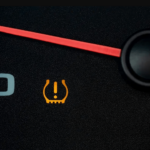
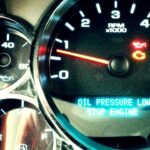
![Check Engine Light On and Off Intermittently [Causes and Fixes] check engine light on and off](https://roadsumo.com/wp-content/uploads/2021/06/check-engine-light-on-and-off-150x150.jpg)
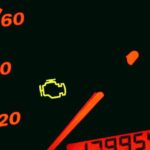
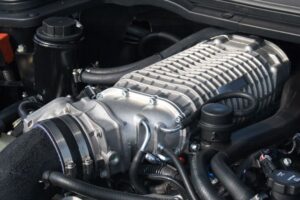
![Read more about the article Ford 6.2 Engine Problems [5 Most Common and How to Fix]](https://roadsumo.com/wp-content/uploads/2021/06/ford-6.2-engine-problems-300x200.jpg)
